Last Updated on November 25, 2022
Plot: Tech billionaire and gambler Jake Foley (Russell Crowe) hosts a high-stakes poker game between childhood friends, offering them the chance to win more money than they’ve ever dreamed of. The evening takes a turn when he unveils his elaborate plan seeking revenge for their betrayals and to play, they’ll have to give up the one thing they’ve spent their lives trying to keep…their secrets. As the game unfolds, thieves break in and they must band together to survive a night of terror.
Review: Russell Crowe is a movie star. There is no question about the actor’s abilities on screen whether it be in marquee dramas like A Beautiful Mind, action epics like Gladiator, or period pieces like Cinderella Man. In recent years, Crowe has performed in projects that appeal to him ranging from pulpy flicks like Unhinged or superhero fare including Man of Steel and Thor: Love and Thunder. At this phase of his career, the New Zealand-born Oscar winner is free to do whatever project he likes and can exercise his talents behind the camera as well. For his sophomore directorial effort, Crowe harkens back to the type of performances that cemented him as one of the best actors working today and showcases some solid skill as a filmmaker as well. Poker Face is not nearly as good as I am making it sound, but it is still an interesting additional to Crowe’s filmography.
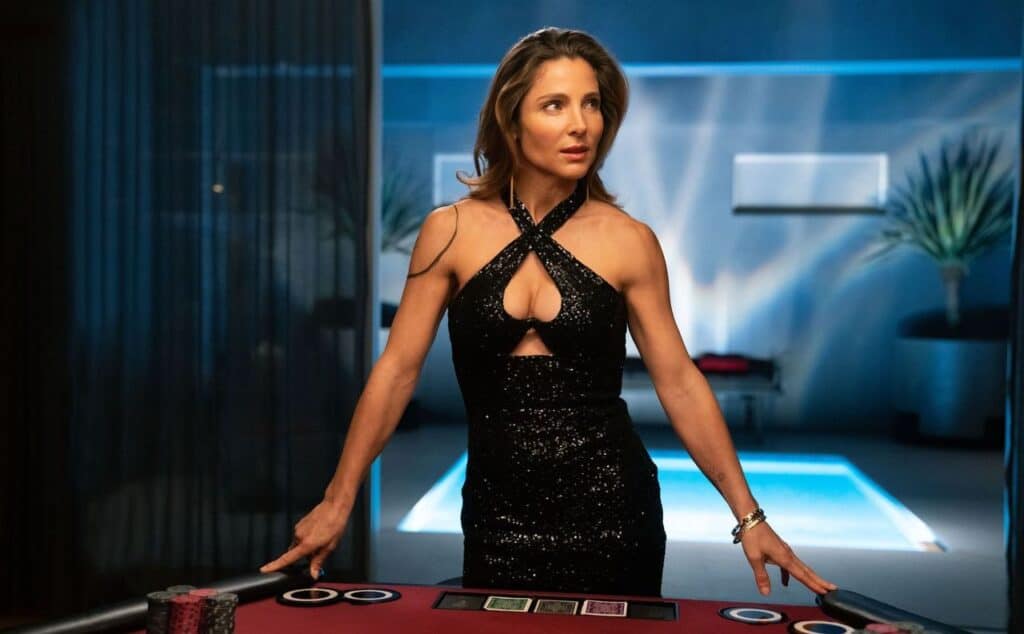
Not quite a poker movie and not quite a thriller, Poker Face falls somewhere between a psychological drama and a heist movie. With elements cobbled from all sorts of genres, this film runs the gamut from emotional melodrama to bizarre continuity questions that raise the question as to just how invested was everyone in making this film. For starters, the core group of friends, all supposedly Australian, include Americans who do not have accents to an actor who is twenty-six years younger than the characters he is childhood friends with. These may seem like minor quibbles in the grand scheme of things, but they also factor into the disjointed storytelling that is anchored by Crowe’s melancholy delivery compared to the broader acting of some others in the cast which makes Poker Face feel like different films edited together.
The film opens with a flashback to a group of teens playing poker before getting into a fight with a local bully and jumping from a cliff into a small lake. It is a wholesome and very Stand By Me-like moment that is soon revealed to be the main characters as kids. In the present, Jake Foley (Russell Crowe) explains his connection forged that day with his closest friends, including Drew (RZA). The friends became business partners when their love of poker turned into the development of software used by governments around the world. Now filthy rich, Jake goes on a spiritual retreat where he contends with devastating news about his health. Reflecting on the death of his first wife in a car accident, Jake conceives of a plan involving his friends whom he gathers at his home for a high-stakes card game. Arriving via a makeshift car race, addict Mike (Liam Hemsworth), politician Paul (Steve Bastoni), and writer Alex (Aden Young) join Drew and Jake for a live-changing game/
For the first forty minutes of the film, the pacing is slow as Jake waxes on his life to this point and prepares for a definitive poker game. Jake proposes a huge bet among his friends, both as a manner of ending his life with a clear conscience and also to ferret out the liars in his inner circle. Jake is no fool and knows that there are people close to him who are deceiving him in more ways than one. With the proposition of the truth ready to reveal everyone’s true motivations, Jake’s plan is interrupted by a group of thieves led by Victor (Paul Tassone) who have come to steal the art and possessions in Jake’s home. Plus, Jake’s wife Nicole (Brooke Satchwell) and teen daughter Rebecca (Molly Grace) learn of Jake’s diagnosis and they arrive as well. Needless to say, things go awry and the card game turns into a heist involving hostages, a panic room, and all sorts of twists and reveals piled atop one another.
Clocking in at just about ninety minutes, Poker Face takes almost half of its running time getting to the card game and then abandons it to focus on the heist and standoff in the final act. Much of this film benefits from the psychological game played between the childhood friends who must echo the film’s title and avoid revealing the cards they actually hold but that is virtually thrown away when the story careens towards an over-the-top Die Hard clone. Paul Tassone, a solid villain, delivers a performance that is completely out of place compared to the rest of the film. In fact, most of the cast seems to abandon the dramatic poker element of the story and never really picks it back up again. The only one who seems consistently invested in Poker Face is Crowe. As a writer (based on a story by Stephen M. Coates), Crowe misses some of the nuances he makes up for with his performance. As a director, Crowe does show some creativity here in certain shots and sequences that are individually more impressive than the overall film.
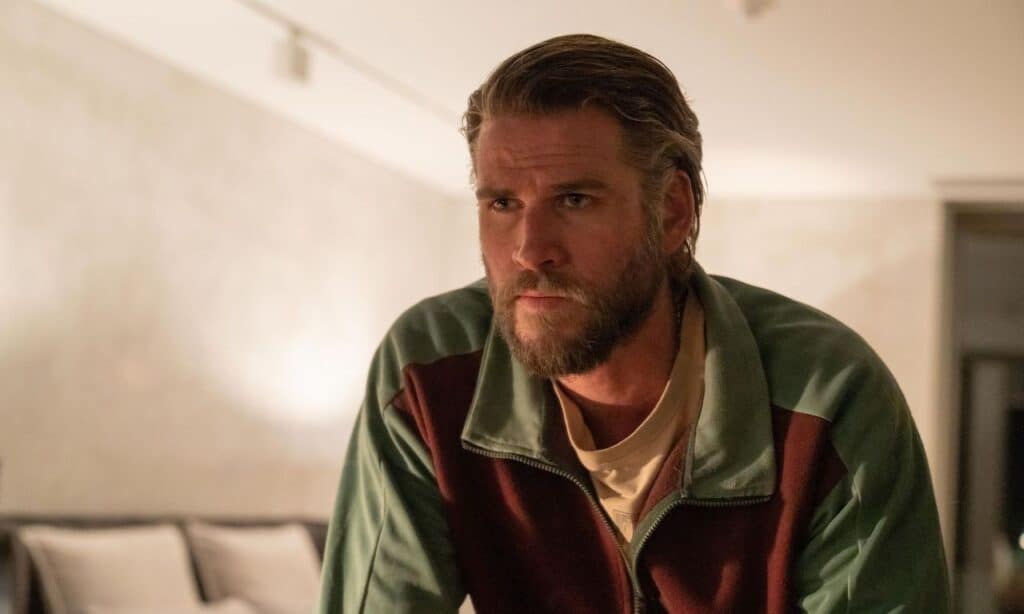
Poker Face could have been a lot better had it played itself out as just a heist flick or just a psychological drama. By treading both genres, Crowe’s film doesn’t quite work as either. There are some glimpses of what this film could have been, including an unnecessary appearance by Elsa Pataky as the dealer for the central poker game. I came away from this short movie impressed by Russell Crowe as both an actor and a director but more based on what he is capable of rather than what he put on screen here. Poker Face is an uneven movie that never really finds a rhythm because it never lays all of its cards on the table.


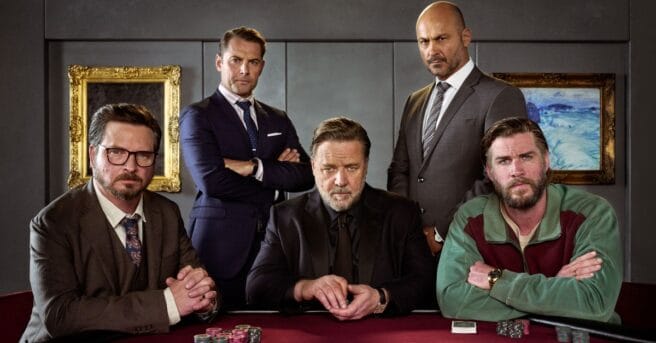




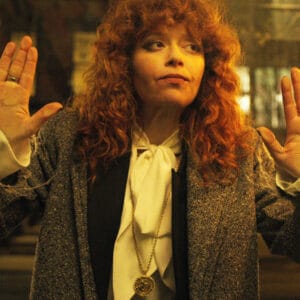
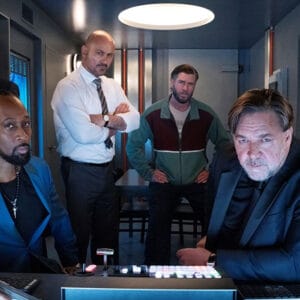
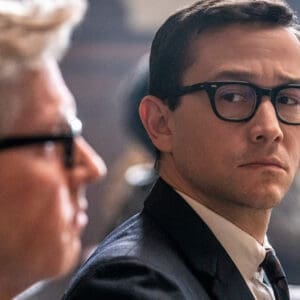











Follow the JOBLO MOVIE NETWORK
Follow us on YOUTUBE
Follow ARROW IN THE HEAD
Follow AITH on YOUTUBE